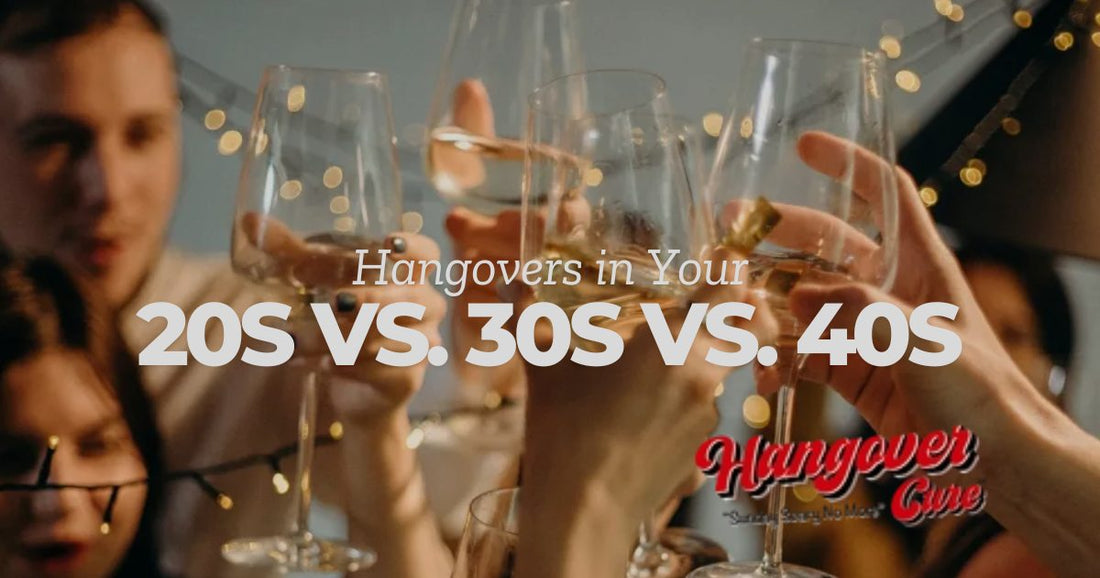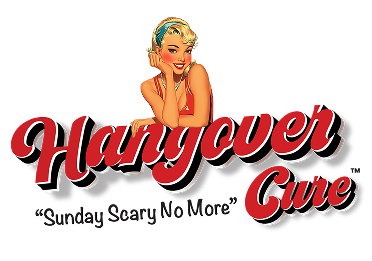
Hangovers in Your 20s vs. 30s vs. 40s: What Changes and Why
Share
As we journey through different stages of life, our bodies undergo various transformations, influencing how we metabolize substances like alcohol. Consequently, the experience of hangovers evolves from our 20s to our 40s. Understanding these changes can help us make informed decisions about alcohol consumption and manage its aftereffects more effectively.
Hangovers in Your 20s

In our 20s, the body's resilience often allows for quicker recovery from the effects of alcohol. Metabolism is generally faster, and the liver processes alcohol more efficiently. However, this doesn't mean hangovers are absent. Factors such as dehydration, electrolyte imbalance, and the presence of congeners (byproducts of alcohol fermentation) can still lead to classic hangover symptoms like headaches, nausea, and fatigue.
Transitioning into Your 30s

Entering the 30s, many individuals notice a shift in how their bodies handle alcohol. Metabolic rates may begin to slow down, and the body's water content decreases, leading to a higher blood alcohol concentration (BAC) after consuming the same amount of alcohol as in younger years. This can result in more pronounced hangover symptoms. Additionally, responsibilities such as career demands and family obligations can exacerbate feelings of fatigue and make recovery more challenging. Source
Hangovers in Your 40s

By the time individuals reach their 40s, several factors contribute to changes in hangover experiences. Muscle mass tends to decrease while body fat increases, affecting the distribution and metabolism of alcohol. This can lead to a prolonged presence of alcohol in the system and more severe hangover symptoms. Moreover, underlying health conditions or medications common in this age group can interact with alcohol, intensifying its effects. Interestingly, some studies suggest that hangover severity may decline with age, possibly due to reduced drinking intensity or increased tolerance. Study Reference
Factors Influencing Hangover Severity Across Ages
Alcohol Consumption Patterns
Younger adults often engage in binge drinking, leading to severe hangovers. With age, drinking patterns may change, influencing hangover experiences.
Metabolic Changes
Aging affects liver enzyme activity and metabolic rates, altering how alcohol is processed.
Body Composition
Shifts in muscle mass and fat distribution with age affect alcohol's impact on the body.
Overall Health and Medications
Chronic health conditions and medications more common in older adults can interact with alcohol, modifying its effects.

Tips for Managing Hangovers at Any Age
-
Moderate Consumption: Pacing alcohol intake and setting limits can prevent excessive BAC levels.
-
Stay Hydrated: Alternating alcoholic beverages with water helps combat dehydration.
-
Nutritional Support: Consuming a balanced meal before drinking can slow alcohol absorption.
-
Quality Sleep: Ensuring adequate rest aids the body's recovery processes.
-
Choose Drinks Wisely: Opting for beverages with fewer congeners may reduce hangover severity.
Understanding how hangovers evolve with age empowers individuals to make informed choices about alcohol consumption and adopt strategies to mitigate adverse effects. Recognizing personal limits and prioritizing health can lead to more enjoyable and responsible drinking experiences throughout life.
Learn more or find solutions at GetHangoverCure.com
See more hangover blogs at Gethangovercure.com/blogs/hangover-hub
